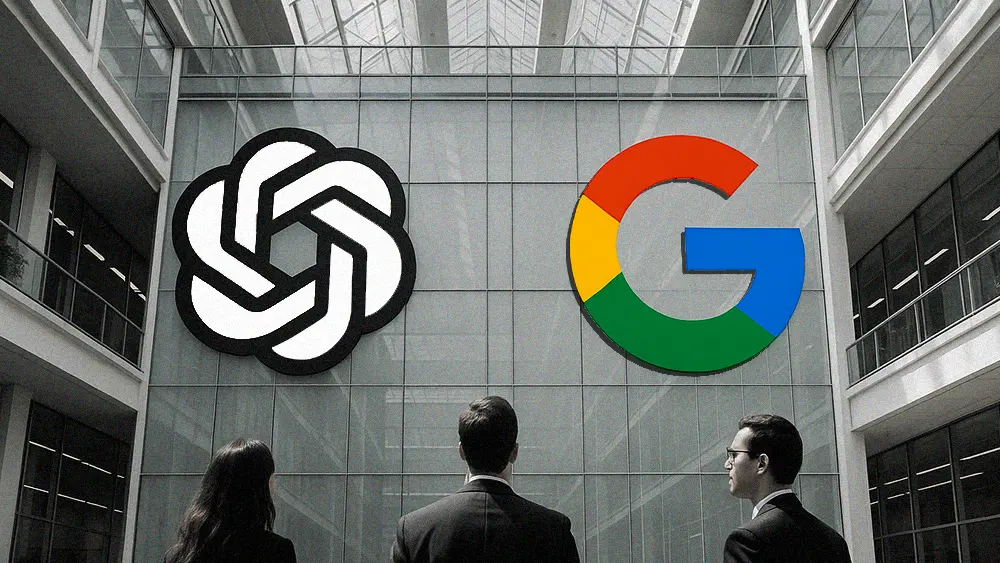Data and Infrastructure
Only proprietary data can protect mid-market AI firms from LLM-driven product obsolescence
Wednesday July 9, 2025

AI giants like Google and OpenAI are expanding into the mid-market, threatening smaller companies that lack proprietary data.
Norman Paulsen emphasizes the importance of well-structured proprietary data to maintain a competitive edge against larger AI firms.
Rapid AI development necessitates frequent backend updates, with new research potentially rendering current frameworks obsolete.
Despite AI's potential, security remains a significant concern, requiring strict data controls and cautious integration of external models.
The AI players who will survive this wave are those with their own proprietary, irreplaceable data. As long as it is a big set and they keep a lead on it, then Google and OpenAI are not going to take over those companies.

Norman Paulsen
Chief AI Officer, Stealth AI Startup
AI giants are moving in fast, replacing smaller players as they go. Survival now depends on one thing: owning data they can’t train on.
We spoke with Norman Paulsen, Chief AI Officer at a stealth AI startup, who brings over a decade of experience in digital transformation and AI development. He argues that as the AI behemoths extend their reach, data becomes the shield protecting companies from obsolescence.
Data for dear life: "The big players—Google, OpenAI, Anthropic—are all moving into the mid-market and actively cannibalizing a lot of these smaller companies, and I fully expect that to continue," Paulsen states. "The AI players who will survive this wave are those with their own proprietary, irreplaceable data. As long as it is a big set and they keep a lead on it, then Google and OpenAI are not going to take over those companies."
Paulsen sees this as part of a larger shift. In his view AGI is not only possible, but it's likely already been achieved. The companies that will stay relevant are the ones applying it with intent, backed by data that can’t be easily replicated.
Legacy lags: Paulsen says the lines between what LLMs offer and what smaller companies provide are disappearing fast. “Distinguishing yourself from the out-of-the-box capabilities of large providers is going to get harder every single month,” he explains. Legacy firms should have the edge with proprietary data—customer info, past sales, industry knowledge—but “bureaucracy and size often get in the way of pivoting toward AI.”
Even for companies that are ready to move, poor data hygiene can grind efforts to a halt. “You don’t want your data in 15, 20, 30 places across your organization,” Paulsen warns. “You want well-structured and defined data stores” with clear plans for both structured and unstructured data. Good organization isn’t just operational, it’s what turns raw data into competitive leverage.
Google and OpenAI won’t integrate with each other, so if you can route tasks to the best model for the job, you stay relevant. That’s a service the giants won’t offer.

Norman Paulsen
Chief AI Officer, Stealth AI Startup
Pick a side, or don't: AI giants are carving up the ecosystem, Paulsen says, with Google and OpenAI pushing toward end-user control while Meta targets the foundational layer through acquisitions like Scale AI. “That could lead to mass customization of models, like what Dell did with computers.” But there's still whitespace for those who stay model-agnostic. “Google and OpenAI won’t integrate with each other, so if you can route tasks to the best model for the job, you stay relevant. That’s a service the giants won’t offer," he explains. "We already see players like Intel and AWS moving in this direction, but no one has a lead yet.”
One agent to rule them all: The speed of AI development is forcing constant reinvention. “It’s changing so rapidly we have to rip out and rebuild our backend every couple of months,” Paulsen says. He points to new research from Meta and UC Berkeley on a self-directed agent that can integrate with tools on its own. “Something like that could completely render the current agentic framework obsolete,” replacing complex multi-agent systems with one that builds itself in—saving massive time.
Proceed with caution: For all its promise, AI remains a volatile frontier. “Security just is not where it needs to be yet. It is one giant attack surface,” Paulsen warns. Isolation and strict data controls are essential, especially when integrating external models. “You have to be very careful how you're using it. Security layers outside the LLM are critical.”
But caution shouldn’t mean paralysis. “AI is in its infancy, and we still don't know what the landscape will look like in five years,” he says. What’s clear is that the companies waiting for clarity will lose to the ones already building. “This technology is revolutionary, and if you're not using it today in some layer or context of your business, you're already behind.”